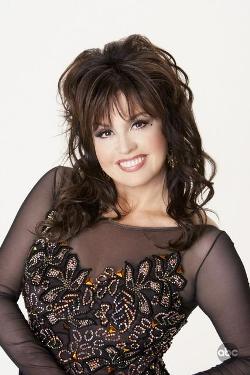For someone who isn’t an avid short film watcher, it was somewhat surprising that the documentary “Bootyful World” and comedy “Good Luck in Her Eye” could encapsulate their respective stories with the ultimate message of female empowerment in under 30 minutes and give it justice.
These films were a part of September’s LA Shorts Fest 2007, which ran in Burbank, CA, and is the largest festival of its kind worldwide with accreditation from the Academy of Motion Pictures Arts & Sciences.
“Bootyful” and “Good Luck” have a similar message and are from Israeli-born Jewish American filmmakers Avital Levy and Tamar Kagan, respectively. However, the two subject matters couldn’t be more different. While director Levy offers a look at the evolution of pop culture and butts with the likes of rapper Sir Mix-a-Lot’s iconic song “Baby Got Back” (phrases include: “I like big butts and I cannot lie”) and the Brazilian Butt Lift surgery, Kagan’s film, which she co-starred in, co-wrote and executive produced, follows a woman debating on whether to follow her heart to a non-Jewish man or her parents’ desire for a co-religionist mate.
So, why make a documentary about the booty? “The short answer is I thought it was funny,” says Levy, a recent graduate of the USC School of Cinematic Arts. Her longer answer has three parts: her curiosity about the butt lift surgery; being raised in Boston she was surprised how many people, especially men, commented positively about the butt; and ultimately how women were viewing themselves in relation to their bottoms.
Levy explores the matter with those in front and behind the camera of the hip-hop industry, a professor, a journalist, a plastic surgeon, a butt-lift patient, a costume historian, a photographer and art director, an actress, a model and people on the street to learn that beauty standards have shifted and a big butt is acceptable.
Exploration and acceptance are also factors in Kagan’s semi-autobiographical story in “Good Luck.” Kagan portrays Hannah, a twenty-something monogamous dater of co-religionists, who is between relationships when she falls in love with a sports doctor. She thinks he is Jewish but is terrified to learn the doctor has a German Christian background. While the specifics in Hannah’s and Kagan’s respective life stories are different, both believed at one point that they must marry a Jewish man or risk breaking their parents’ heart.
Kagan isn’t exactly sure why she has carried the pressure of fulfilling this desire attributed to her parents, if it is something they requested, she assumed or an influence of attending the Hebrew Academy of San Francisco when she was growing up.
“There was a lot of influence as I was becoming my own person,” says the NYU Tisch School of Arts graduate. “I struggled with that push forward: ‘Who am I? Do I really want this or is this something that I’m told to do and that’s why I’m doing it?’”
In the end, Hannah figures out what is good for her — as Kagan has in real-life, where she is happy with supportive parents and a relationship with a non-Jew.
Ultimately, Kagan and Levy have high hopes that audiences end up being open to the various possibilities in life and the changing definition of beauty and find ease in that.
“I just hope people feel comfortable in their own skin,” Levy says.
I am taking the filmmakers’ messages to heart, as well as an appreciation for the short film genre. I also agree with Kagan about short films becoming their own media, being a calling card for young filmmakers and garnering more attention with multiple festivals focused on them.
“I think they get industry attention and people do pay attention because the short filmmaker is tomorrow’s feature filmmaker,” she says. “Hopefully, one begets the other.”
In Kagan and Levy’s cases, I believe it will.
-written by Sara Shereen Bakhshian


